Magento Website Development in 2023
In the ever-evolving world of ecommerce, staying ahead of the curve is crucial for businesses aiming to thrive in a competitive market. As we gear up to embrace 2023, one platform that has consistently proven its mettle is Magento. This game-changing solution continues to empower online retailers with cutting-edge technology and unmatched flexibility. If you're seeking ways to revolutionize your digital presence and deliver outstanding customer experiences, Magento website development might just be your golden ticket! In this blog post, we'll delve into the ins and outs of Magento, explore why it's an unbeatable choice for website development, discuss essential services offered by top Magento top experts, outline the development process itself and share tips for success. So buckle up as we embark on this insightful journey into the realm of Magento web design services a future-proof investment guaranteed to give your business the ultimate boost!
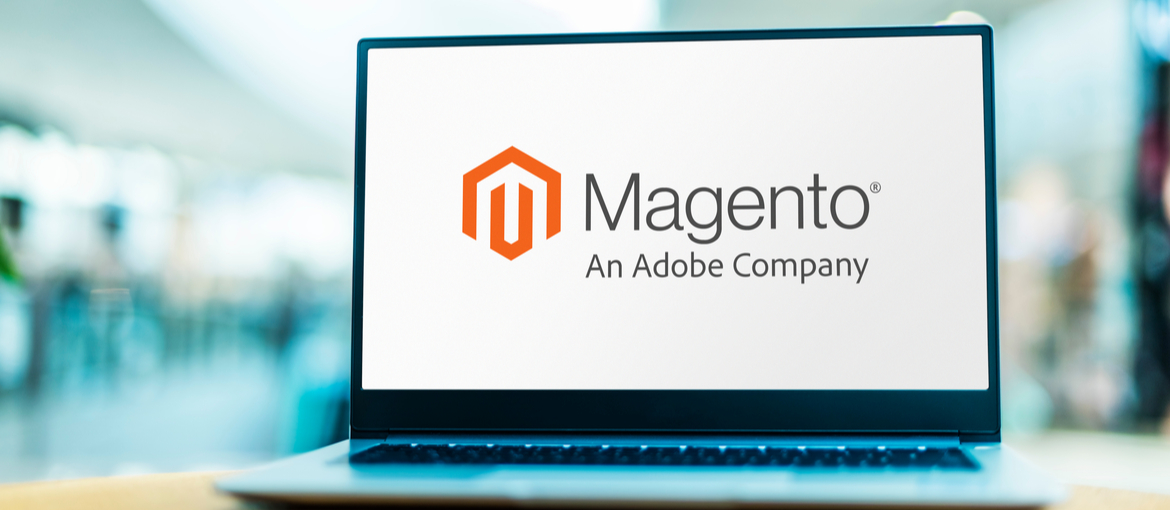
What is Magento?
Magento is an open-source ecommerce platform that allows businesses to create customized online stores tailored to their specific needs. Launched in 2008, it has quickly gained traction among retailers seeking a robust and flexible solution for their digital presence.
Built on PHP, Magento harnesses the power of industry-leading technologies like Zend Framework and MySQL database management system to deliver unparalleled performance and security. With its extensive library of themes, extensions, and plugins, this versatile platform offers endless possibilities for customization.
One of the key advantages of Magento lies in its scalability; whether you're a small startup or a large enterprise with multiple websites under your wing - Magento can effortlessly adapt to accommodate your growth trajectory. Additionally, it boasts an active community comprising developers and users who continuously work together towards improving the platform's features and functionality.
Magento stands tall as one of the most sought-after ecommerce solutions out there providing businesses with unmatched flexibility and control over every aspect of their ecommerce agency and online store.
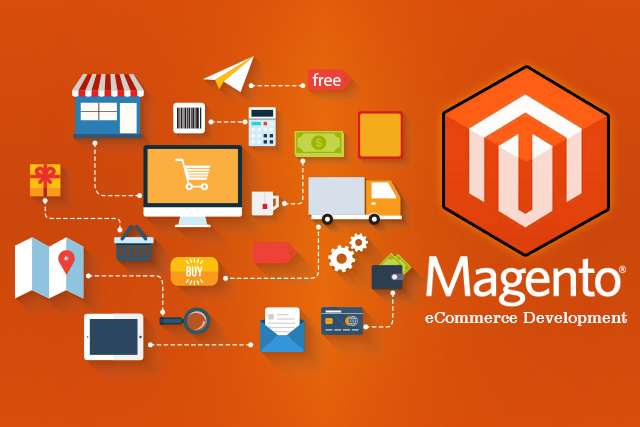
What are Magento development services?
Magento development services refer to the range of services offered by professionals or agencies specializing in building, customizing, and maintaining Magento-based e commerce development. These services are designed to help businesses leverage the Magento ecommerce platform to create powerful and tailored online stores. Here are some common Magento development services:
- Magento web development services: This service involves building a new Magento website from scratch or migrating an existing website to the Magento platform. It includes setting up the Magento environment, configuring the necessary settings, and creating a customized website design.
- Custom Theme Development: Magento development services may include creating a unique and visually appealing theme or template for your online store. This involves designing and coding the front-end elements to match your brand identity and provide an optimized user experience.
- Extension Integration and Development: Magento has a vast marketplace of extensions and modules that can enhance the functionality of your e-commerce website. Developers can help you choose and integrate the right extensions or even develop custom extensions tailored to your specific business needs.
- Payment Gateway Integration: Integrating payment gateways is crucial for online stores to process transactions securely. Magento developers can integrate popular payment gateways into your website, ensuring smooth and secure payment processing for your customers.
- Customization and Module Development: Magento is highly customizable, allowing businesses to add unique features and functionalities. Magento development services can include customizing existing modules or developing custom modules to meet specific business requirements.
- Performance Optimization: Magento websites require optimization for optimal performance and fast loading times. Development services can include performance analysis, code optimization, database optimization, caching implementation, and server configuration to enhance the speed and efficiency of your online store.
- Magento Maintenance and Support: Once your Magento website is launched, ongoing maintenance and support are essential. Developers can provide regular updates, security patches, bug fixes, and technical support to ensure your website remains secure, up-to-date, and running smoothly.
- Magento SEO: SEO (Search Engine Optimization) is crucial for online visibility and driving organic traffic to your e-commerce store. Magento development services may include implementing SEO best practices, optimizing website structure, URLs, meta tags, and ensuring compliance with SEO guidelines.
It's important to note that the specific services offered may vary between the top Magento development companies, agencies or professionals. It's advisable to discuss your requirements with a trusted Magento development service provider to get a clear understanding of the services they offer and how they can meet your specific needs.
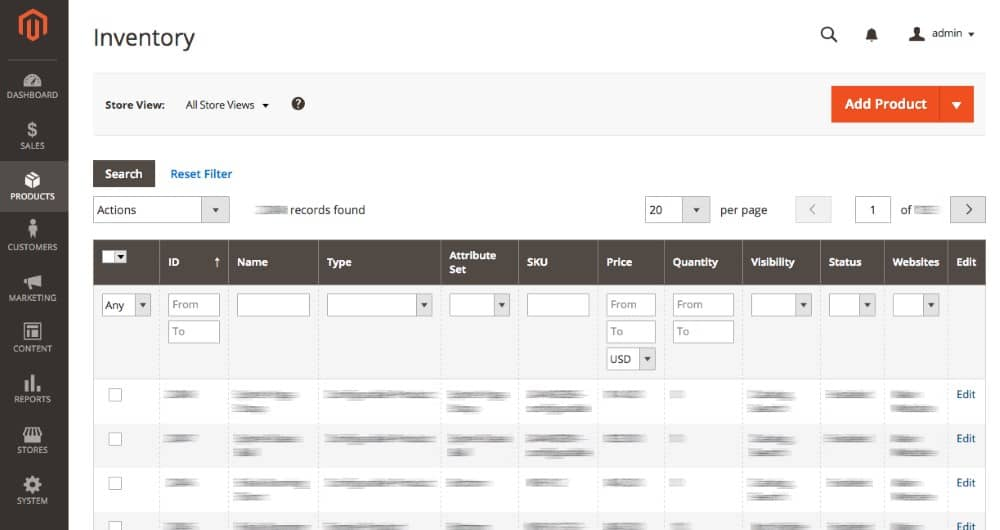
How much does it cost to build a Magento website?
The cost of building a Magento website can vary significantly depending on several factors such as the complexity of the website, desired features and functionality, design requirements, customization needs, development resources, and more.
Here are some cost considerations for building a Magento website:
- Magento Edition: Magento offers both open-source (Magento Community Edition) and commercial (Magento Enterprise Edition) versions. The open-source version is free, while the commercial version requires a license fee. The cost will differ depending on the edition you choose.
- Development: The development cost includes activities like setting up the Magento platform, theme development or customization, extension integration or development, and overall website configuration. The complexity and size of the website will influence the development cost.
- Design: The design aspect involves creating a visually appealing and user-friendly website. Costs may vary based on whether you choose a pre-built theme, purchase a premium theme, or opt for a custom-designed theme. Custom designs tend to be more expensive.
- Extensions and Modules: Magento has a vast extension marketplace offering various extensions and modules to enhance the functionality of your website. Some extensions are free, while others require a one-time or recurring fee. The cost will depend on the specific extensions you choose to install.
- Hosting and Infrastructure: You need a reliable hosting provider to run your Magento website efficiently. Hosting costs can vary based on factors such as server specifications, performance requirements, scalability, and managed services. Additionally, you may need to consider the cost of an SSL certificate for secure transactions.
- Maintenance and Support: After launching your Magento website, you may require ongoing maintenance, updates, bug fixes, security patches, and technical support. The cost of these services can be an ongoing expense.
It is challenging to provide an exact cost without knowing specific project requirements. However, for a basic Magento website, the total cost could start from a few thousand dollars and increase significantly for larger, more complex projects. It's advisable to consult with web development agencies or professionals to get accurate cost estimates based on your specific needs.
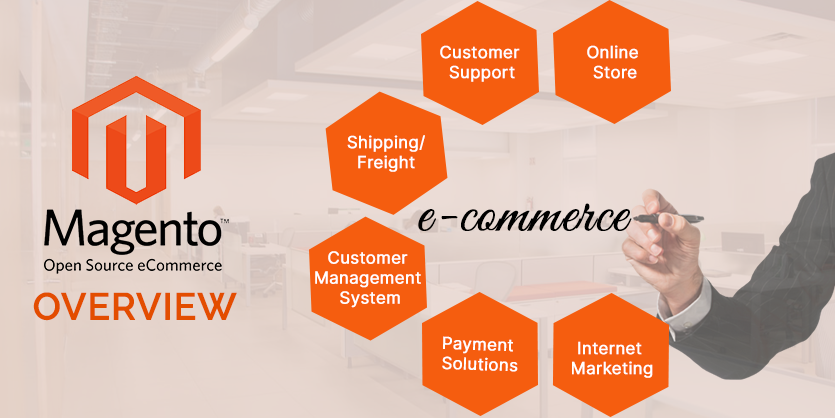
Why Magento for Website Development?
Magento is an open-source eCommerce platform that has been gaining immense popularity in recent years. One of the primary reasons why Magento is preferred over other platforms for website development is its scalability and flexibility. It offers a broad range of features, including mobile-friendly configuration, multi-lingual support, and much more.
Another reason why businesses prefer Magento for website development is its user-friendly interface. Its intuitive backend system makes it easy to manage various aspects of your online store without any technical expertise.
Moreover, Magento provides robust security features that help protect sensitive customer information from cyber threats. This feature ensures that customers feel secure while shopping on your website and helps build trust between you and your audience.
Furthermore, one of the most significant advantages of using Magento for website development is its ability to handle high traffic volumes efficiently. It can support thousands of products with multiple SKUs effortlessly without compromising the performance or speed of your website.
If you want a scalable, flexible, secure, user-friendly eCommerce platform with excellent performance capabilities underpinning it all then look no further than Magento!

Which is better Magento or WordPress?
Deciding between Magento and WordPress depends on your specific needs and the nature of your website. Both platforms have their strengths and are tailored to different types of websites.
Magento:
- E-commerce Focus: Magento is primarily designed for building robust and scalable ecommerce websites. It offers extensive technology companies features out of the box, including inventory management, order tracking, payment integration, and customer segmentation.
- Scalability: Magento sites is known for its ability to handle large-scale ecommerce websites with high traffic and complex product catalogs. It offers excellent scalability and performance, making it suitable for businesses with significant growth potential.
- Advanced Features: Magento provides advanced features like multi-store functionality, multi-language support, and powerful catalog management. It offers a wide range of extensions and customization options, allowing you to tailor the platform to your specific business requirements.
- Technical Expertise: Magento is a more complex platform compared to WordPress, requiring technical expertise to set up and manage effectively. It is best suited for businesses with dedicated development resources or the budget to hire Magento specialists.
WordPress:
- Ease of Use: WordPress is known for its user-friendly interface, making it accessible to users with little technical expertise. It is a popular choice for bloggers, small businesses, and content-driven websites.
- Versatility: While WordPress began as a blogging platform, it has evolved into a versatile content management system (CMS). It supports various website types, including blogs, portfolios, business websites, and small business site.
- Vast Plugin Ecosystem: WordPress boasts a vast plugin ecosystem, offering a wide range of plugins for additional functionality. It provides numerous e-commerce plugins, such as WooCommerce, that enable you to add basic ecommerce project features to your WordPress site.
- Community and Support: WordPress has a large and active community of users and developers, which means there is extensive documentation, tutorials, and support available. Finding resources and assistance for WordPress-related issues is generally easier compared to Magento.
In summary, Magento is the preferred choice for large-scale ecommerce business websites with complex requirements, while WordPress is a versatile platform suitable for various types of websites, including smaller e-commerce stores. Consider your specific needs, scalability requirements, technical expertise, and budget when making a decision between Magento and WordPress.
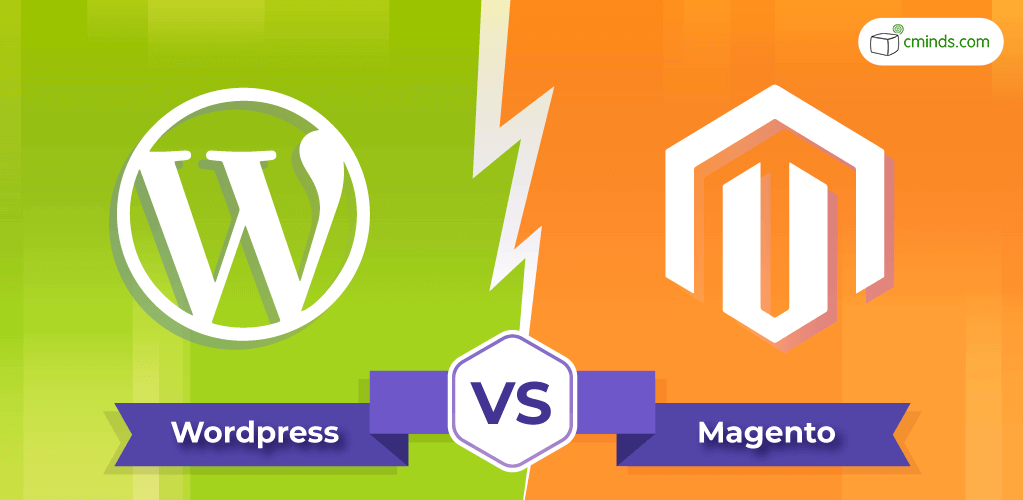
Magento Services
Magento offers a range of services that can help businesses develop and manage their online stores. One of the main benefits of Magento services is the ability to customize your website's design and functionality to meet your specific needs.
One important service offered by Magento is its ecommerce platform, which includes features such as inventory management, order tracking, payment processing, and customer account management. This allows businesses to easily manage their online sales operations from a single platform.
Another key service provided by Magento is web development. The company has a team of experienced developers who can create custom websites tailored to the unique requirements of each business. They can also provide ongoing maintenance and support for these sites.
In addition to these core services, Magento also offers a number of other tools and resources designed to help businesses succeed online. These include marketing automation tools, analytics software, and integrations with third-party apps like Salesforce and MailChimp.
Magento's comprehensive suite of services makes it an ideal choice for businesses looking to establish or expand their online presence. Whether you're just starting out or have been in business for years, there are numerous ways that Magento can help you achieve your goals.
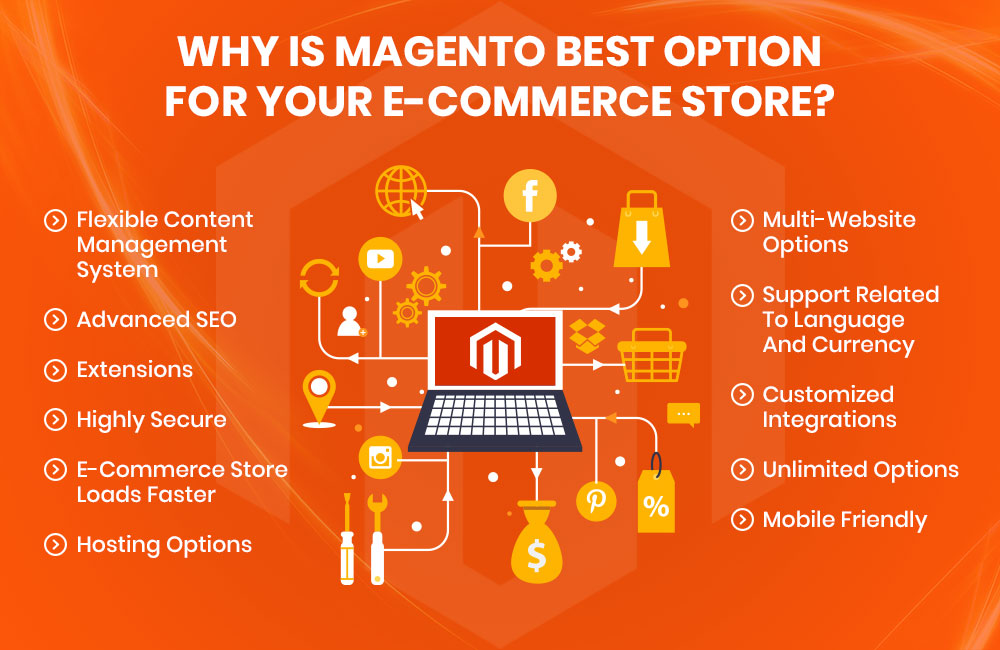
The Process of Magento Website Development
The process of Magento website development involves multiple stages that ensure the successful delivery of a high-quality eCommerce platform. The first step is to determine the requirements and objectives of the website, including its design, functionality, and target audience. This information will help guide the project plan.
Next comes the design phase where wireframes are created to outline how the site will look and function. Once approved by stakeholders, developers begin building out custom themes and extensions tailored to meet specific business needs.
Testing plays a crucial role in this process as it ensures that everything from user experience to security is running smoothly. Any issues or bugs discovered during this stage are addressed before moving onto deployment.
Launching an eCommerce site can be tricky, but with proper documentation and training provided by the developer team, merchants can feel confident managing their new store once it goes live. Ongoing maintenance services often include updates to features or troubleshooting any problems that arise post-launch.
There's a lot that goes into Magento website development from planning through execution but following these steps closely will result in delivering an online store built for success!
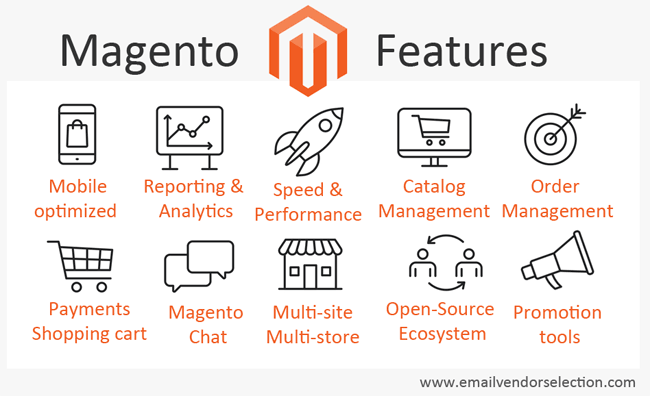
Tips for a Successful Magento Website Development
Developing a Magento website can be quite challenging, but with the right approach and strategy, you can achieve success. Here are some tips for a successful Magento website development:
1. Plan and Prepare: Before embarking on any web project, it is important to plan and prepare adequately. Define your goals, target audience, user flow, functionality requirements and design elements.
2. Choose the Right Magento Developers: It is essential to choose experienced developers who have a proven track record of creating successful Magento websites. Look for companies that offer comprehensive services such as custom theme design, extension integration and maintenance.
3. Optimize Site Performance: A slow-loading site can kill conversions before they even start! Optimize your sites performance by optimizing images, reducing HTTP requests & database queries among others.
4. Focus on User Experience: The primary objective of any eCommerce website should be to enhance the user experience (UX). Ensure that your site navigation is intuitive; product pages are easy-to-read; checkout process simple & secure etc.
5. Mobile Optimization: With more users accessing sites via mobile devices than ever before it's critical that your magento website looks great across all devices - desktops/laptops/tablets/smartphones
By following these guidelines, you will set yourself up for success in developing a high-performing Magento website that drives traffic/leads/conversions while providing an excellent user experience!
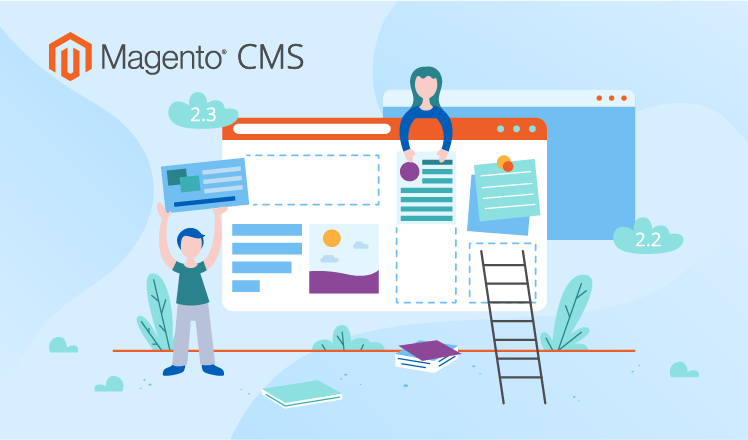
Conclusion
Magento is a powerful and versatile platform for website development. Its flexibility allows it to cater to the needs of businesses both big and small, making it an ideal choice for anyone looking to create an online presence.
When choosing a Magento development agency or web developer, it's important to consider their experience in the field. Look for someone who has worked on similar projects before and can provide references from past clients.
Remember that the cost of developing a Magento website may vary depending on several factors such as functionality requirements, design complexity, hosting fees etc. It's important to discuss these details with your developer beforehand so that you have a clear understanding of what you're paying for.
With proper planning and execution, your Magento-based ecommerce store can become one of the most effective tools in growing your business online. So take advantage of magento store and all its features today!

